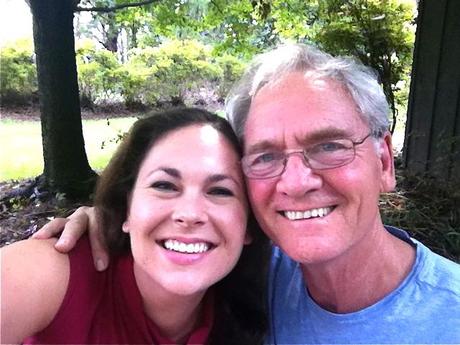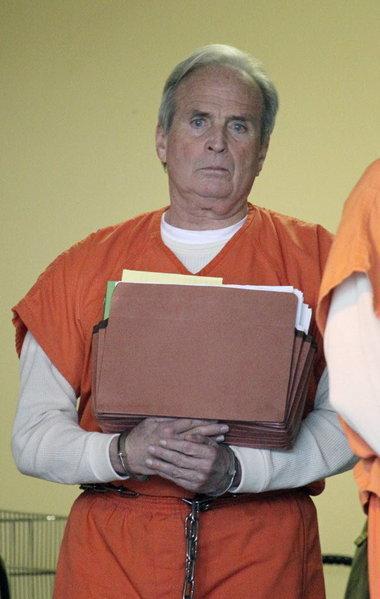
Vladimir Putin
Russian president Vladimir Putin has signed a law that bans adoptions to the United States, taking effect tomorrow (January 1). The story has special resonance here in the Deep South because it raises questions about America's fading moral authority--and nothing shines light on that issue like the flagrantly unlawful prosecutions of prominent figures in Alabama and Mississippi.
Don Siegelman, the former governor of Alabama, has resided at a federal prison in Oakdale, Louisiana, since Sept. 11. He reported there after the U.S. Supreme Court refused to hear his appeal, even though the trial court and the U.S. Eleventh Circuit Court of Appeals both misapplied the settled legal standard for cases of alleged bribery in the context of a campaign contribution.
Paul Minor, a highly successful attorney from Biloxi, Mississippi, is in a federal prison at Pensacola, Florida, on charges that largely mirror those in the Siegelman case. We have written dozens of posts about the Mississippi case and shown that Minor and codefendants Wes Teel and John Whitfield were convicted mainly because the trial judge issued jury instructions that were almost the exact opposite of what the actual law states.
It's hard to compare cases of judicial and prosecutorial corruption, but the misconduct in the Minor case might have been even more blatant than that in the Siegelman case. That's saying something when you consider that the Siegelman case has attracted the attention of 60 Minutes and other major news outlets.
Siegelman, a popular Democrat in a heavily Republican state, became a target during the George W. Bush years, and extensive evidence suggests that GOP political guru Karl Rove used his extensive connections in Alabama right-wing circles to orchestrate a bogus prosecution.
Minor apparently became a target because he helped win huge settlements against the tobacco and asbestos industries, angering the U.S. Chamber of Commerce and other corporate interests. Minor also was a prominent financial supporter of Democratic campaigns, including the John Edwards presidential bid.

Dana and Don Siegelman
Numerous journalists, op-ed writers, and legal experts--including more than 100 former state attorneys general--have concluded that Siegelman and former HealthSouth CEO Richard Scrushy were wrongly convicted of a "crime" that does not exist under the actual law. Scrushy completed his sentence and was released from prison in 2012; Siegelman was free pending appeals, and now faces a sentence of more than six years.Dana Siegelman, the former governor's daughter, is leading an effort to free her father via a presidential pardon. Her campaign has gained traction, giving birth to a Web site at free-don.org and numerous appearances in the press. But for now, Don Siegelman is every bit as much a political prisoner in Barack Obama's America as millions of political opponents were under the Gulag system of Josef Stalin's Soviet Union.
Sadly, and ironically, the Siegelman fiasco has fallen at the feet of a Democratic president, our nation's first black commander in chief. Siegelman was indicted, prosecuted, convicted, and originally sent to prison during the Bush years. But the Obama Department of Justice, under feckless Attorney General Eric Holder, argued against a Supreme Court hearing of the Siegelman case.
That means Obama now "owns" the most notorious political prosecution in American history. And it means that Vladimir Putin is standing on solid moral ground when he ends 20 years of adoptions between his country and the United States. After all, the U.S. no longer is in any position to point fingers at other countries for failing to abide by the rule of law.
On the surface, the Russian bill that includes a ban on U.S. adoptions grew from opposition to the Magnitsky Act, which Obama signed in mid December. The administration opposed the Magnitsky measure, which bars Russian citizens accused of violating human rights from traveling to the United States and from owning real estate or other assets there. But the president overcame his concerns about possible diplomatic retaliation and signed it, mainly because members of Congress were eager to press Russia over human rights abuses--and they tied the bill to another measure granting Russia new status as a full trading partner.

Paul Minor
In a deeper sense, the controversy over the Magnitsky Act indicates the United States is wearing blinders about its own human-rights abuses. Putin was quick to point that out as the Magnitsky bill made its way toward becoming law, according to a report in The New York Times:Mr. Putin loudly accused the United States of hypocrisy, noting human rights abuses in Iraq, Afghanistan and at Guantánamo Bay, Cuba, and he pledged to retaliate.
Putin apparently limited his critique to international matters, but he could have gone much farther by pointing to human-rights abuses on American soil. Exhibit A could have been the political prosecution of Don Siegelman. The Paul Minor case could have served as Exhibit B.
Vladimir Putin likely has never heard of Paul Minor--or Don Siegelman, for that matter. But the Russian president was on target when he pointed out that the United States' record on human rights has been radically diminished in recent years.
When you live in Birmingham, Alabama--as I do--you don't have to look far to see evidence of that.
Here is a Russia Today report on the adoption ban and its implications:
